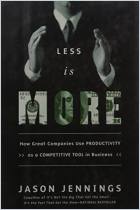Зарегистрируйтесь на getAbstract, чтобы получить доступ к этому краткому изложению.

Зарегистрируйтесь на getAbstract, чтобы получить доступ к этому краткому изложению.
Ric Merrifield
Re-think
A Business Manifesto for Cutting Costs and Boosting Innovation
FT Press, 2009
Что внутри?
Savvy business reorganization requires focusing on the all-important “whats” and not the ancillary “hows.”
Recommendation
Business architect Ric Merrifield says many executives get hung up on the “hows” of running a firm: the techniques, tactics and technologies their companies use to operate. In the process, they fail to focus on the all-important “whats” of their enterprises, that is, central functions like manufacturing quality products, fulfilling orders, satisfying customers and so on. Lost in superfluous details, these leaders can’t see their real priorities. Merrifield says that for many such executives, basic rethinking is in order. In this book, he explains how to take a fresh look at your business to identify and prioritize your core activities. Although the metaphorical overload of “whats” and “hows” might make you want to ask, “Who’s on first?” this is a solid take on leading innovation. getAbstract recommends it to any executives who suspect they may need to refocus or broaden their perspectives about their organizations.
Summary
About the Author
Ric Merrifield is a business architect for a large software company, where he has filed many applications for patents of companies’ operating models. He was a consultant for 15 years.


















Comment on this summary